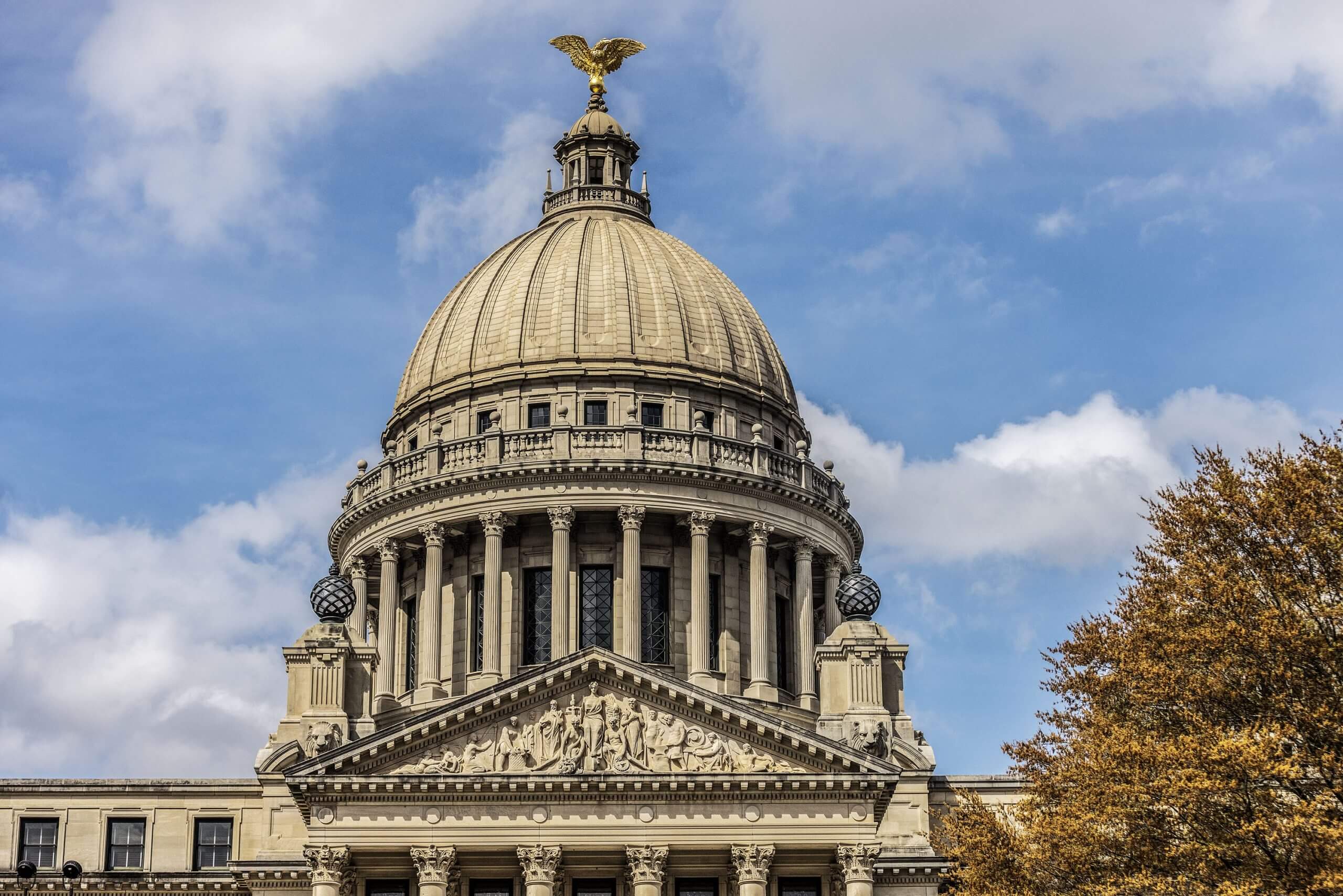

Republican Lt. Gov. Delbert Hosemann needed some Democrats to help pass the Senate’s original tax overhaul plan, because some far-right Republicans opposed it.
And he needed those Democrats again to pass a counter-offer to the House (one which famously included some crucial typos).
Had negotiations over the tax overhaul continued as expected — they ended because the Senate typos accidentally supported the House position and the House and the governor ran with it — the House Republican leadership might well have also needed more Democratic support to hold the line against Senate demands.
This presented the minority Democratic Party in Mississippi with an opportunity it hasn’t had in recent years: some leverage with the dominant Republican supermajority in the Legislature.
Democrats (and rural Republicans for that matter) could have, in exchange for helping the GOP leadership get the income tax elimination some have long coveted, demanded more equity in how the state divvies up money for roads and other infrastructure and economic development.
But they didn’t use that rare opportunity.
Will they have it again soon? Maybe.
There’s a very good chance Republican leaders will soon need to find more state revenue, and as the saying goes, the only crop government grows is taxes. Coming back and re-adding safeguards and increases to other taxes that got lost in the tax overhaul in-fighting among House and Senate Republicans will likely be a hard sell for many GOP lawmakers, and Gov. Tate Reeves most assuredly would oppose it. Legislative leaders might very well need Democratic help.
But for now, enough Democrats played checkers instead of chess and went along with the GOP plans in both the House and Senate that the Republican leaderships didn’t have to cede anything. Instead, Democrats helped pass an historical measure to eliminate the state income tax and shift to more “regressive” taxation which would benefit wealthy Mississippians and locales and shift more burden onto poor and less-affluent people and areas. It promises to exacerbate the generations-long unequal distribution of wealth and government resources in Mississippi.
Shy of stopping the GOP push for income tax elimination and more regressive taxation — it’s unclear whether Democrats and a handful of Senate Republicans who opposed the plan could have done that — Democrats could have come up with their own tax elimination/overhaul plan. Or at least demanded some concessions.
For instance, as it stands, the new tax structure will most likely have people in rural Claiborne County — the poorest county in the nation — coming out of pocket more with gasoline taxes that will largely go to fund major roadwork in prosperous, growing counties such as Madison. Some metrics show the most overtaxed people in Mississippi aren’t in areas like Madison or Rankin Counties — with already low property taxes and more likely to reap benefits of an income tax cut — but in counties and cities in the Delta.
Transportation leaders, perhaps understandably, direct road projects to areas that are already growing. The relatively small amount of new money from the increase in gasoline taxes in the new structure is likely to follow that pattern.
State economic development spending and focus are on areas that are already seeing growth, and where the local governments can afford to develop industrial parks and infrastructure to lure development. Earlier this session, local Delta government officials rallied at the Capitol pointing out that they’ve been told they have to develop shovel-ready industrial parks for the state to direct development and jobs their way. But they noted many locales can’t even scrape up a few million to do so from their meager tax bases.
Places like the Mississippi Delta, the southwest and many other areas in the state are faced with a vicious cycle. They’re losing population and tax base because of mechanized agriculture and numerous other factors. They can’t raise the money to break the cycle, and for years the state has been too cash strapped, and politically and racially divided, to provide any help.
Now, with the new tax plan cutting more than $2 billion from the state’s $7 billion general fund, there’s about to be a lot less money for government to spend, shy of some miraculous economic growth in the poorest state in the country. So, how and where it’s spent will be even more crucial, dire for poor, rural areas of the state.
And in recent years, when the state has had some extra money to spend from unprecedented federal largesse after the pandemic, it’s not been spent based on need. It’s been spent on the political spoils system.
State government has for years sent capitol projects money to local governments via “Christmas tree” bills. The most powerful (nearly always Republican) lawmakers direct the spending to their districts. It’s based on raw politics, not state needs.
Hosemann before the 2024 federal elections explained to DeSoto County Republican Party officials that all areas of Mississippi need infrastructure funding from the state and, “the way you do that is to make sure you elect good, conservative people” to maneuver the spoils system.
As the GOP leaders plotted and planned how to keep local governments “whole” as they tinkered with trimming the sales tax on some food and considered general sales tax increases, Democrats could have demanded they address the wildly inequitable state sale tax diversion, which helps keep wealthy areas wealthy, poor areas poor. For instance the per capita state sales tax diversion for the largest city in Issaquena county is $19, compared to the largest in Rankin County, $970.
If the state’s going to have a major reduction in revenue like the more than $2 billion income tax elimination, Democrats and Republicans in poorer areas could have demanded at least a modest increase in equitability to local governments in poor areas. Or perhaps more agriculture tax incentives where farming is the only economic activity. Or a more regional approach to sales or use tax diversion, instead of only to individual cities, and include a formula that distributes the diversion at least partially based on needs.
There’s been talk of consolidation and regionalization in government and education in Mississippi for years, and Democrats have often fought it, in part because the few instances of consolidation and regionalization have appeared punitive and were foisted upon areas that had little say in it. Some Democratic strategists have more recently opined poor areas should demand more regionalization and consolidation, but demand it be done more even handedly than, say what Jackson has had to contend with.
The current system of state spending continues to divide the state not only by wealth, but often by race.
House Minority leader Robert Johnson, D-Natchez, said he recently commissioned the Legislature’s watchdog committee to crunch some numbers on capital projects and economic development spending and found, “70% of the money is spent in majority white counties and 30% in majority Black counties.”
“We focus on areas that are already rich and enrich them even more,” Johnson said.
Johnson and other Democratic leaders clearly realize their missed opportunity in the Republican tax fight.
Senate Minority leader Derrick Simmons, said: “Time and time again, I’ve seen where (Democrats) have had the ability to exert our power, yet we have fallen short by not voting in solidarity with the working people of Mississippi.”
Johnson said he believes Democrats will soon have another opportunity to have a say in Mississippi’s taxation and spending, “because the bill that passed is disastrous” and Republicans passed it on knowing it has flaws.
Because of Republican fighting, it lacks the growth and spending “triggers” Senate Republicans said were prudent in deleting nearly a third of the state’s revenue, and it lacks the off-setting 1.5% sales tax increase House Republican leaders said was prudent.
“And I think, in the words of (state Rep.) Omeria Scott, who tried to point out a lot of these things to everybody, I think we’ll be able to say, ‘I told you so.’”
The post GOP tax battle gave Mississippi Democrats golden opportunity. Instead, they just went along for the ride appeared first on Mississippi Today.
- Scott Colom raised most money, but Cindy Hyde-Smith has most cash before March primary - February 21, 2026
- Patients face canceled surgeries and delayed care amid UMMC cyberattack - February 20, 2026
- Goal is ‘better alignment, not bigger government’ for Mississippi tourism - February 20, 2026